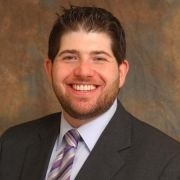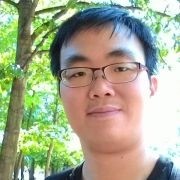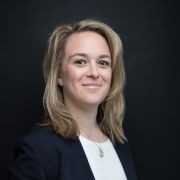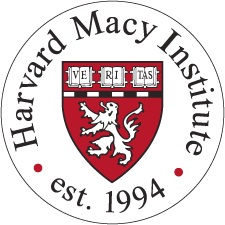The Harvard Macy Institute would like to thank our alumni, Eric Gantwerker, Atipong Pathanasethpong, and Arabella Simpkin, for co-authoring this blog.
A buzz of activity and energized bodies met us as we arrived for the Association for Medical Education in Europe (AMEE) 2017 pre-conference in Helsinki on faculty development. Recognizing the importance of faculty development in medical education, this pre-conference is in its 4th year with thought leaders from throughout the globe. Overall, there is no doubt “faculty development” was among the highlights at AMEE 2017, with 5 major trends coming to the forefront, which we detail below:
- Global Initiatives
[Opening panel discussion, moderated by David Irby (USA) with Eliana Amaral (Brazil), Kirsti Lonka (Finland), and Dujeepa Samarasekera (Singapore) as panelists. Closing plenary, moderated by Outi Kortekangas-Savolainen (Finland) with Yvonne Steinert (Canada) as speaker.]
Historically, many faculty development efforts have been siloed within institutions (and indeed within departments) without input from outside voices and without scope for dissemination. In an increasingly global world with diverse faculty and trainees, cross-cultural dissemination of ideas and practices in faculty development is now essential. It allows for cross-pollination, dissemination of best practices, and a growing network of medical educators.
Global initiatives in faculty development must, of course, recognize commonalities and differences in local culture. Many faculty development problems are not geographically unique. We heard an example of how a Canadian institution had translated a program for mentors from a university in Taiwan - tailoring of an existing program for their context and culture. Both institutions benefitted from this collaboration and dissemination of ideas. Being mindful as one proceeds with global initiatives in faculty development will result in a great deal of cultural awareness and experience in adjusting interventions to a new context.
A useful by-product of global initiatives is that they have broader appeal. This means that such attempts will garner more interest and potentially more funding and support, resulting in a higher chance of success.
- Communities of Practice
[Workshop, hosted by Alice Fornari (USA) and Maria Blanco (USA).]
What are the similarities and differences between a fishing community and a fishing company?
They are similar in that they are in the same “fishing industry,” both with the same practices - the methods of fishing. But the difference is that once the job is done, people in the fishing company go their separate ways, while those in the fishing community share best practices and have long-lasting personal relationships with each other.
Personal relationships are the key difference. The workshop hosts gave Etienne Wenger’s definition of a Community of Practice (CoP) as “a group of people who share a concern or a passion for something they do [Domain] and learn how to do it better [Practice] as they interact regularly [Community]” (brackets and emphases by blog authors). While Domain and Practice exist in a fishing company, Community does not.
In a sense, a CoP is like a working group. But while a working group is formally formed and driven by job-related or financial incentives, a CoP is informally and organically formed and is driven by passion and personal relationships. These differences allow a CoP to be more flexible, egalitarian, and self-sustainable than a working group.
Some of the proposed benefits of having a CoP rather than a working group are stronger identity formation, higher potential to capture tacit knowledge and know-hows that aren’t easily articulated, decreased learning curve for new members, and production of knowledgeable and passionate individuals.
That some personal touch binds us together and keeps us committed over a long period of time is nothing new, but we have not thought about how crucial this element is in producing high-functioning teams of motivated individuals in medical education. Organizations should create an environment that is conducive for CoPs to form, and seek out existing CoPs within the organization that aren’t yet identified and help them grow. Importantly, you cannot order people to develop CoPs, you can only support passionate individuals to take the lead.
- Faculty Identity Formation
[Workshop, hosted by Patricia O’Sullivan (USA), David Irby (USA), and Yvonne Steinert (Canada).]
Faculty often view themselves as having compartmentalized identities: educator; physician; scientist; teacher; son/daughter; husband/wife; father/mother. Personal, professional and organizational roles often sit separately in silos. Encouraging faculty to consider “Who Am I?” - mapping out their personal, professional and organization roles in a Venn Diagram, allows multiple identities to meld together and creates an opportunity for reflection. A better understanding of our own identity - and how it shifts - is undoubtedly needed. As our identity changes over time, we must remember to periodically take time to reflect.
- Faculty Development as a Tool for Organizational Change
[Workshop, hosted by Miriam Boillat (Canada) and Yvonne Steinert (Canada).]
Faculty development programs are often developed in isolation, detached from the larger organizational purposes. Such programs are mostly based on cutting edge discoveries or the current buzz in the field, but not based on what faculty members need in order to help the organization reach its goals. Leaders also rarely view faculty development as a part of the large-scale strategy to achieve organizational goals. This is a lost opportunity because better alignment between organizational goals and faculty development programs can synergize and provide much more for the organization and everyone in it.
Transitioning from isolated efforts to more deliberate and systematized programs for faculty development is best started from the top. As the organizational goals are set and strategies to achieve such goals are put together, leadership needs to identify the gap between faculty members’ current capabilities and those that are required to reach goals. Faculty developers then need to use their expertise and create plans to help faculty members obtain the required capabilities. If successful, this collaborative effort will bring both faculty development programs and organizational performance to the next level.
- Faculty Development under Constant Changes in Social Elements
[Plenary by Catherine Lucey (USA)]
Dr. Catherine Lucey discussed how humans throughout time had adapted their skills with changing social environments and opportunities. We evolved from hunter/gatherers in prehistoric times, through the industrial age, and then all the way to primarily business people.
Dr. Lucey contrasted this workforce identity shift with that of health professions education needs. She described how in the age of Flexner (Sage on Stage Era), faculty were seen as the ‘sage on stage’ and were primarily responsible for content delivery. This changed in the 1980s (Teaching Skills Era) where teaching skills came into sharp focus. Faculty at this time needed to cultivate judgment and data analysis in medical decision making. In the 2000s (Pedagogy Era), there emerged a community of educators whose focus was on pedagogy during an information boom in which information was readily available to both patients and trainees. This, along with other pressures, led to an identity shift in which said educators no longer had the bandwidth to focus on all three areas of clinical practice, research, and education.
The 21st Century has led to a very different workforce skill set needed for trainees now and in the future. The sage on stage is no longer needed to perform content delivery, yet we still need faculty wisdom and experience. The teaching dyad has also changed so that trainers and trainees are now co-producers of learning. Dr. Lucey called this new age the ‘Habits of Mind’ era.
The three key habits of mind inquiry, equity, and growth. This will be an identity shift for faculty to promote continuous inquiry of knowledge, equity of opportunities for education, and lifelong growth of all individuals. New faculty development programs will be needed to assist in this identity shift and issue them into the 21st century.
To conclude, there is no doubt that faculty development is an important and burgeoning area in the medical education community. Much rich discussion ensued at AMEE, and we look forward to growing global collaborations and continued conversation.
Co-authors:

Eric Gantwerker, MD MS MMSc (MedEd) is a 2015 Harvard Macy Scholar and graduate of the MMSc in Medical Education Program at Harvard Medical School. He is an Assistant Professor of Otolaryngology at the University of Texas – Southwestern and Children’s Health. Dr. Gantwerker splits his time between surgery, quality improvement (QI), and education. Clinically, he specializes in children with complicated airway problems and co-leads a large multidisciplinary quality and safety improvement effort around tracheostomy care. By studying curriculum development, cognitive science of learning, educational technology, and researching how people learn, he is hoping to change how medicine is taught and bring it into the 21st century. He conducts educational research and curriculum development in undergraduate and graduate medical education and simulation.

Atipong Pathanasethpong, MD MMSc (MedEd) is a 2015 Harvard Macy Scholar and graduate of the MMSc in Medical Education Program at Harvard Medical School. Atipong works as an anesthesiologist and medical educator at Faculty of Medicine, Khon Kaen University, Thailand. He is currently active in instructional design and in disseminating cognitive science concepts to his trainees and colleagues.

Arabella Simpkin, MA (Oxon) BMBCh MRCPCH MMSc (MedEd) is a 2015 Harvard Macy Scholar and graduate from the Master of Medical Sciences in Medical Education program at Harvard Medical School. She is a pediatrician, gaining her medical degree from the University of Oxford in 2006. Arabella currently holds a faculty position in the Department of Medicine at Massachusetts General Hospital where she is involved in the creation of a Center for Educational Innovation and Scholarship. Her research passion is in professional development, in particular studying the attributes of resilience and tolerance of uncertainty.
Todd B Fowler


